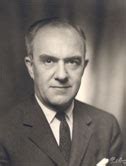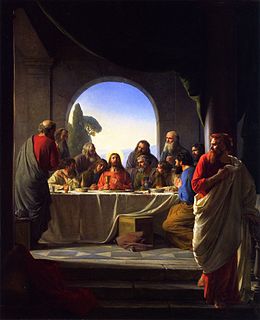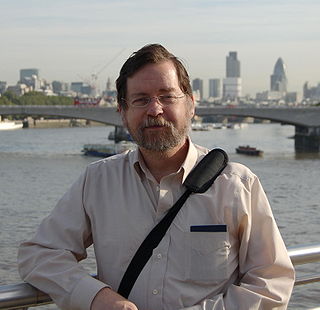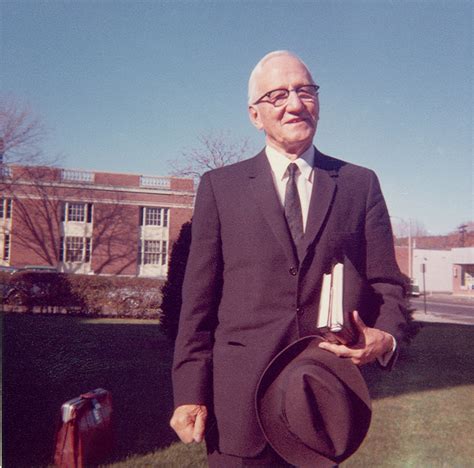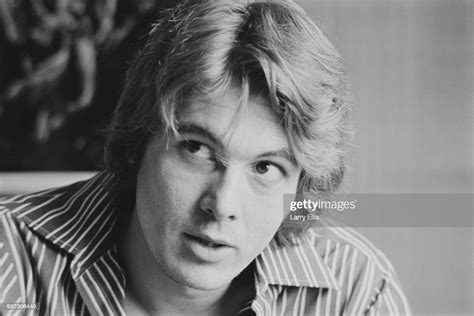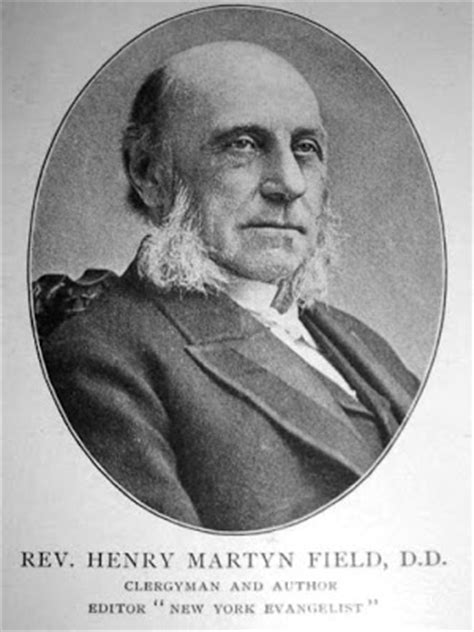Top 1200 Virtue Quotes & Sayings - Page 5
Explore popular Virtue quotes.
Last updated on April 21, 2025.
God Most High has said, "Is the reward of virtue aught save virtue?" . . . Know, O man, that the covenant of servanthood is incumbent upon you, and that the covenant of Lordship is incumbent upon His magnanimity, as He Most High has said, ". . . and fulfill your covenant, I shall fulfill My covenant."
I do not admire a virtue like valour when it is pushed to excess, if I do not see at the same time the excess of the opposite virtue, as one does in Epaminondas, who displayed extreme valour and extreme benevolence. For otherwise it is not an ascent, but a fall. We do not display our greatness by placing ourselves at one extremity, but rather by being at both at the same time, and filling up the whole of the space between them.
An essential virtue is humility. ... The principle of humility and prayer leads one to feel a need of divine guidance. Self-reliance is a virtue, but with it should go a consciousness of the need of superior help-a consciousness that as you walk firmly in the pathway of duty, there is a possibility of your making a misstep; and with that consciousness is a prayer, a pleading that God will inspire you to avoid that false step
Human nature itself is evermore an advocate for liberty. There is also in human nature a resentment of injury, and indignation against wrong. A love of truth and a veneration of virtue. These amiable passions, are the "latent spark" . . . If the people are capable of understanding, seeing and feeling the differences between true and false, right and wrong, virtue and vice, to what better principle can the friends of mankind apply than to the sense of this difference?
When we pray for any virtue, we should cultivate the virtue as well as pray for it; the form of your prayer should be the rule of your life; every petition to God is a precept to man. Look not, therefore, upon your prayers as a method of good and salvation only, but as a perpetual monition of duty. By what we require of God we see what he requires of us.
There is no virtue in compulsory government charity, and there is no virtue in advocating it. A politician who portrays himself as "caring" and "sensitive" because he wants to expand the government's charitable programs is merely saying that he's willing to try to do good with other people's money. Well, who isn't? And a voter who takes pride in supporting such programs is telling us that he'll do good with his own money - if a gun is held to his head.
Emulation has been termed a spur to virtue, and assumes to be a spur of gold. But it is a spur composed of baser materials, and if tried in the furnace will be found to want that fixedness which is the characteristic of gold. He that pursues virtue, only to surpass others, is not far from wishing others less forward than himself; and he that rejoices too much at his own perfections will be too little grieved at the defects of other men.
[Men] prefer the foolish belief and the passions of the earth [to the enlightenment of their souls]. They believe the absurd and shrink from the truth.No, they do not. They are afraid, that is all. And they must remain on earth until they come to the way of leaving it.And how do they leave? How is the ascent made? Must one learn virtue?Here she laughs. You have read too much, and learned too little. Virtue is a road, not a destination. Man cannot be virtuous. Understanding is the goal. When that is achieved, the soul can take wing.
If you wish to become a divine immortal angel, then restore the angelic qualities of your being through virtue and service. This is the only way to gain the attention of the immortals... These angelic teachers cannot be sought out; it is they who seek out the student. When you succeed in connecting your energy with the divine realm through high awareness and the practice of undiscriminating virtue, the transmission of the ultimate subtle truths will follow.
The true wisdom of the philosopher ought to insist in enjoying everything. Yet we apply ourselves to dissecting and destroying everything that is good in itself, that has virtue, albeit the virtue there is in mere illusions. Nature gives us this life like a toy to a weak child. We want to see how it all works; we break everything. There remains in our hands, and before our eyes, stupid and opened too late, the sterile wreckage, fragments that will not again make a whole. The good is so simple.
We godless lack that certainty, and we know the world is a complex place that requires compromise and is not ruled by a moral force - virtue is subject to negotiation, and is found in working together with others to find mutually satisfactory solutions. Good is not absolute, it is an emergent property that arises from successful networks of individuals. It is also something that is measured by evidence: we look at the good that people do, not the promises that they make and never keep, or the lies that dovetail nicely into dogma. Competence is a virtue. Intent is meaningless without action.
Phronimos, possessing practical wisdom . But the only virtue special to a ruler is practical wisdom; all the others must be possessed, so it seems, both by rulers and ruled. The virtue of a person being ruled is not practical wisdom but correct opinion; he is rather like a person who makes the pipes, while the ruler is the one who can play them.
I do not hesitate to say that the road to eminence and power, from an obscure condition, ought not to be made too easy, nor a thing too much of course. If rare merit be the rarest of all things, it ought to pass through some sort of probation. The temple of honor ought to be seated on an eminence. If it be open through virtue, let it be remembered, too, that virtue is never tried but by some difficulty and some struggle.
In all times and in all places--in Constantinople, northwestern Zambia, Victorian England, Sparta, Arabia, . . . medieval France,Babylonia, . . . Carthage, Mahenjo-Daro, Patagonia, Kyushu, . . . Dresden--the time span between childhood and adulthood, however fleeting or prolonged, has been associated with the acquisition of virtue as it is differently defined in each society. A child may be good and morally obedient, but only in the process of arriving at womanhood or manhood does a human being become capable of virtue--that is, the qualities of mind and body that realize society's ideals.
There are not many beginnings but there is a single Beginning, prior to multitude. But if you were to say that the beginnings are plural apart from their partaking of the One, that statement would self-destruct. For, surely, these plural beginnings would be both alike, by virtue of their not partaking of the One, and not alike, by virtue of their not partaking of the One.
Let Christ turn your natural optimism into Christian hope, your energy into moral virtue, your good will into genuine self-sacrificin g love! This is the path you are called to take. This is the path to overcoming all that threatens hope, virtue and love in your lives and in your culture. In this way your youth will be a gift to Jesus and to the world.
He who gives himself to a lover because he is a good man, and in the hope that he will be improved by his company, shows himself to be virtuous, even though the object of his affection turn out to be a villain, and to have no virtue; and if he is deceived he has committed a noble error. For he has proved that for his part he will do anything for anybody with a view to virtue and improvement, than which there can be nothing nobler.
Natural good is' so intimately connected with moral good, and natural evil with moral evil, that I am as certain as if I heard a voice from heaven proclaim it, that God is on the side of virtue. He has learnt much, and has not lived in vain, who has practically discovered that most strict and necessary connection, that does and will ever exist between vice and misery, and virtue and happiness.
My views on charity are very simple. I do not consider it a major virtue and, above all, I do not consider it a moral duty. There is nothing wrong in helping other people, if and when they are worthy of the help and you can afford to help them. I regard charity as a marginal issue. What I am fighting is the idea that charity is a moral duty and a primary virtue.
[the virtues] cannot exist without Prudence. A proof of this is that everyone, even at the present day, in defining Virtue, after saying what disposition it is [i.e. moral virtue] and specifying the things with which it is concerned, adds that it is a disposition determined by the right principle; and the right principle is the principle determined by Prudence.
Society is the true sphere of human virtue. In social, active life, difficulties will perpetually be met with; restraints of many kinds will be necessary; and studying to behave right in respect of these is a discipline of the human heart, useful to others, and improving to itself. Suffering is no duty, but where it is necessary to avoid guilt, or to do good; nor pleasure a crime, but where it strengthens the influence of bad inclinations, or lessens the generous activity of virtue.
"Virtue," he said. "The real thing. It's not some kind of cuddly teddy bear you can keep on the shelf until you need a hug. It's dangerous, which is why it makes people so nervous. Virtue has its own agenda, and believe me, it's not always yours. The word itself means strength, power. And when it gets loose, you'd better watch out." "Something bad might happen..." "Impossible. But possibly something painful."
When we think of the height of God's infinity we should not despair of His compassion reaching us from such a height; and when we recall the infinite depth of our fall through sin we should not refuse to believe that the virtue which has been killed in us will rise again. For God can accomplish both these things: He can come down and illumine our intellect with spiritual knowledge, and He can raise up the virtue within us and exalt it with Himself through works of righteousness.
They who assert the purest right, and consequently are most dangerous to a corrupt State, commonly have not spent much time accumulating property. The rich man is always sold to the institution which makes him rich. Absolutely speaking, the more money, the less virtue; for money comes between a man and his objects, and obtains them for him; and it was certainly no great virtue to obtain it.
The tools are evolving, and people's interests are evolving as well. So, suddenly people like to hear bands, people like Devendra Banhart or the xx, bands that make a kind of virtue of sloppiness. That isn't what they would describe what they're doing, but the fact is they make a virtue of the sort of hand-made nature of what they're doing.
It is odd that a value/virtue that plays such a central role in dramatic literature has played such a small role in philosophical writing. There are probably a number of reasons, but I think that a predilection for a certain kind of individualism is a major one. Others might include the fashionability of consequentialism, the idea that loyalty has more to do with sentiment than reason, as well as its proneness to corruption. The revival of interest in virtue/character as distinct from rules/principles has also created space for a renewed, if hesitant, interest in loyalty.
People continued regardless of all that leads man forward to try to unite the incompatibles:;: the virtue of love, and what is opposed to love, namely, the restraining of evil by violence. And such a teaching, despite its inner contradiction, was so firmly established that the very people who recognize love as a virtue accept as lawful at the same time an order of life based on violence and allowing men not merely to torture but even to kill one another.
No one should judge that he has greater perfection because he performs great penances and gives himself in excess to the staying of the body than he who does less, inasmuch as neither virtue nor merit consists therein; for otherwise he would be an evil case, who for some legitimate reason was unable to do actual penance. Merit consists in the virtue of love alone, flavored with the light of true discretion without which the soul is worth nothing.
It would seem that the ingratitude, whereby a subsequent sin causes the return of sins previously forgiven, is a special sin. For, the giving of thanks belongs to counter passion, which is a necessary condition of justice. But justice is a special virtue. Therefore this ingratitude is a special sin. Thanksgiving is a special virtue. But ingratitude is opposed to thanksgiving. Therefore ingratitude is a special sin.
When the Gauls laid waste Rome, they found the senators clothed in their robes, and seated in stern tranquillity in their curule chairs; in this manner they suffered death without resistance or supplication. Such conduct was in them applauded as noble and magnanimous; in the hapless Indians it was reviled as both obstinate and sullen. How truly are we the dupes of show and circumstances! How different is virtue, clothed in purple and enthroned in state, from virtue, naked and destitute, and perishing obscurely in a wilderness.
Karma is the record of services. Karma is the term used in Buddhist teaching. Taoists use the term te. Christians us the term "deed." Many other spiritual beings use the term "virtue." Karma, te, deed, and virtue are the same thing but in different words. To understand karma is to understand all of these words.
The mechanism that directs government cannot be virtuous, because it is impossible to thwart every crime, to protect oneself from every criminal without being criminal too; that which directs corrupt mankind must be corrupt itself; and it will never be by means of virtue, virtue being inert and passive, that you will maintain control over vice, which is ever active: the governor must be more energetic than the governed.
Some reformers may urge that in the ages distant future, patriotism, like the habit of monogamous marriage, will become a needless and obsolete virtue; but just at present the man who loves other countries as much as he does his own is quite as noxious a member of society as the man who loves other women as much as he loves his wife. Love of country is an elemental virtue, like love of home.
Prejudice is of ready application in the emergency; it previously engages the mind in a steady course of wisdom and virtue, and does not leave the man hesitating in the moment of decision, skeptical, puzzled and unresolved. Prejudice renders a man's virtue his habit; and not a series of unconnected acts. Through past prejudice, his duty becomes part of his nature.
I call not that virginity a virtue, which resideth onely in the bodies integrity; much less if it be with a purpose of perpetually keeping it: for then it is a most inhumane vice. - But I call that Virginity a virtue which is willing and desirous to yield it self upon honest and lawfull terms, when just reason requireth; and until then, is kept with a modest chastity of body and mind.
I have sought earnestly and with great diligence that good and high virtue by which man may draw closest to God... and as far as my intelligence would permit, I find that high virtue to be pure disinterest, that is, detachment from creatures. Our Lord said to Martha 'Unum est necessarium', which is to say; to be untroubled and pure, one thing is necessary and that is disinterest.
Patriotism is as much a virtue as justice, and is as necessary for the support of societies as natural affection is for the support of families. The Amor Patriae love of ones country is both a moral duty and a religious duty. It comprehends not only the love of our neighbors but of millions of our fellow creatures, not only of the present but of future generations. This virtue we find constitutes a part of the first characters of history.
I also want to raise the possibility that there are, in the very long term, "virtue effects" in economics- for instance that widespread corrupt accounting will eventually create bad long term consequences as a sort of obverse effect from the virtue-based boost double-entry book-keeping gave to the heyday of Venice. I suggest that when the financial scene starts reminding you of Sodomand Gomorrah, you should fear practical consequences even if you like to participate in what is going on.
We are all prone to brood on the evil done us. That brooding becomes as a gnawing and destructive canker. Is there a virtue more in need of application in our time than the virtue of forgiving and forgetting? There are those who would look upon this as a sign of weakness. Is it? I submit that it takes neither strength nor intelligence to brood in anger over wrongs suffered, to go through life with a spirit of vindictiveness, to dissipate one’s abilities in planning retribution. There is no peace in the nursing of a grudge. There is no happiness in living for the day when you can ‘get even.
We pass for what we are. Character teaches above our wills. Men imagine that they communicate thier virtue or vice by overt actions, and do not see that virtue or vice emit a breath ever moment....One tendency unites them all. The voyage of the best ship is a zsig zag line of a hundred tacks. See the line from a sufficent distance and it straightens itslef to the average tendency.
If we state the function of man to be a certain kind of life, and this to be an activity or actions of the soul implying a rational principle, and the function of a good man to be the good and noble performance of these, and if any action is well performed when it is performed in accordance with the appropriate excellence human good turns out to be activity of the soul in accordance with virtue, and if there are more than one virtue, in accordance with the best and most complete.
Justice in the individual is now defined analogously to justice in the state. The individual is wise and brave in virtue of his reason and spirit respectively: he is disciplined when spirit and appetite are in proper subordination to reason. He is just in virtue of the harmony which exists when all three elements of the mind perform their proper function and so achieve their proper fulfillment; he is unjust when no such harmony exists.
My friend is one who takes me for what I am. A stranger takes me for something else than what I am. . . . What men call social virtues, good fellowship, is commonly but the virtue of pigs in a litter which lie close together to keep each other warm. It brings men together in crowds and mobs in bar-rooms and elsewhere, but it does not deserve the name of virtue.
People don't want to think. And the deeper they get into trouble, the less they want to think. But by some sort of instinct, they feel that they ought to and it makes them feel guilty. So they'll bless and follow anyone who gives them a justification for not thinking. Anyone who makes a virtue - a highly intellectual virtue - out of what they know to be their sin, their weakness and their guilt.
As you climb the mountains of life, stay on the path of virtue. There will be others to help you- your parents, family members, bishops, advisers, and righteous friends of all ages. And if you are weary or take a wrong turn, change your direction and get back on the path of virtue. Always remember that the Savior is there for you. He will enable you to repent, strengthen you, lighten your burdens, dry your tears, comfort you, and continue to help you stay on the path.
It makes that a virtue which is not a virtue, and that a crime which is not a crime. Religion consists in a round of observances that have no relation whatever to natural goodness, but which rather exclude it by being a substitute for it. Penances and pilgrimages take the place of justice and mercy, benevolence and charity. Such a religion, so far from being a purifier, is the great corrupter of morals.
Public virtue cannot exist in a nation without private, and public virtue is the only foundation of republics. There must be a positive passion for the public good, the public interest, honour, power and glory, established in the minds of the people, or there can be no republican government, nor any real liberty: and this public passion must be superiour to all private passions.
The virtue of Marcus Aurelius Antoninus was of a severer and more laborious kind. It was the well-earned harvest of many a learned conference, of many a patient lecture, and many a midnight lucubration. At the age of twelve years, he embraced the rigid system of the Stoics, which taught him to submit his body to his mind, his passions to his reason; to consider virtue as the only good, vice as the only evil, all things external as things indifferent.
That education should be regulated by law and should be an affair of state is not to be denied, but what should be the character of this public education, and how young persons should be educated, are questions which remain to be considered. As things are, there is disagreement about the subjects. For mankind are by no means agreed about the things to be taught, whether we look to virtue or the best life. Neither is it clear whether education is more concerned with intellectual or with moral virtue.










